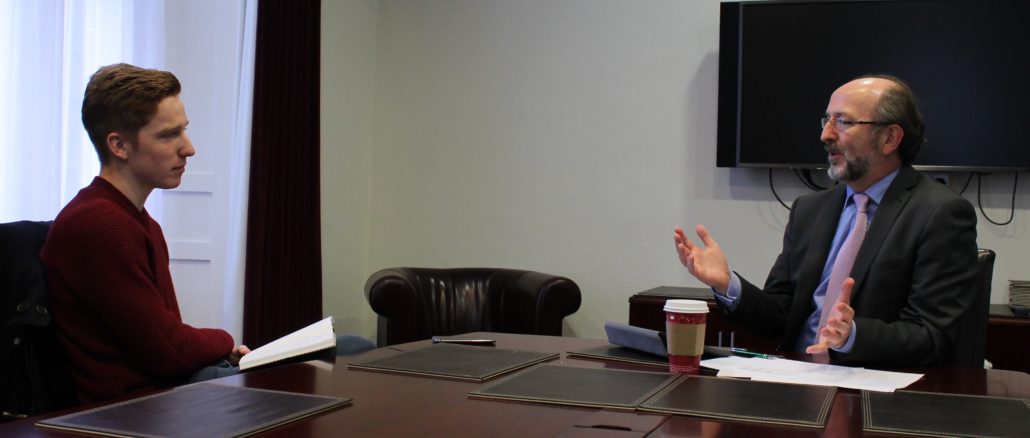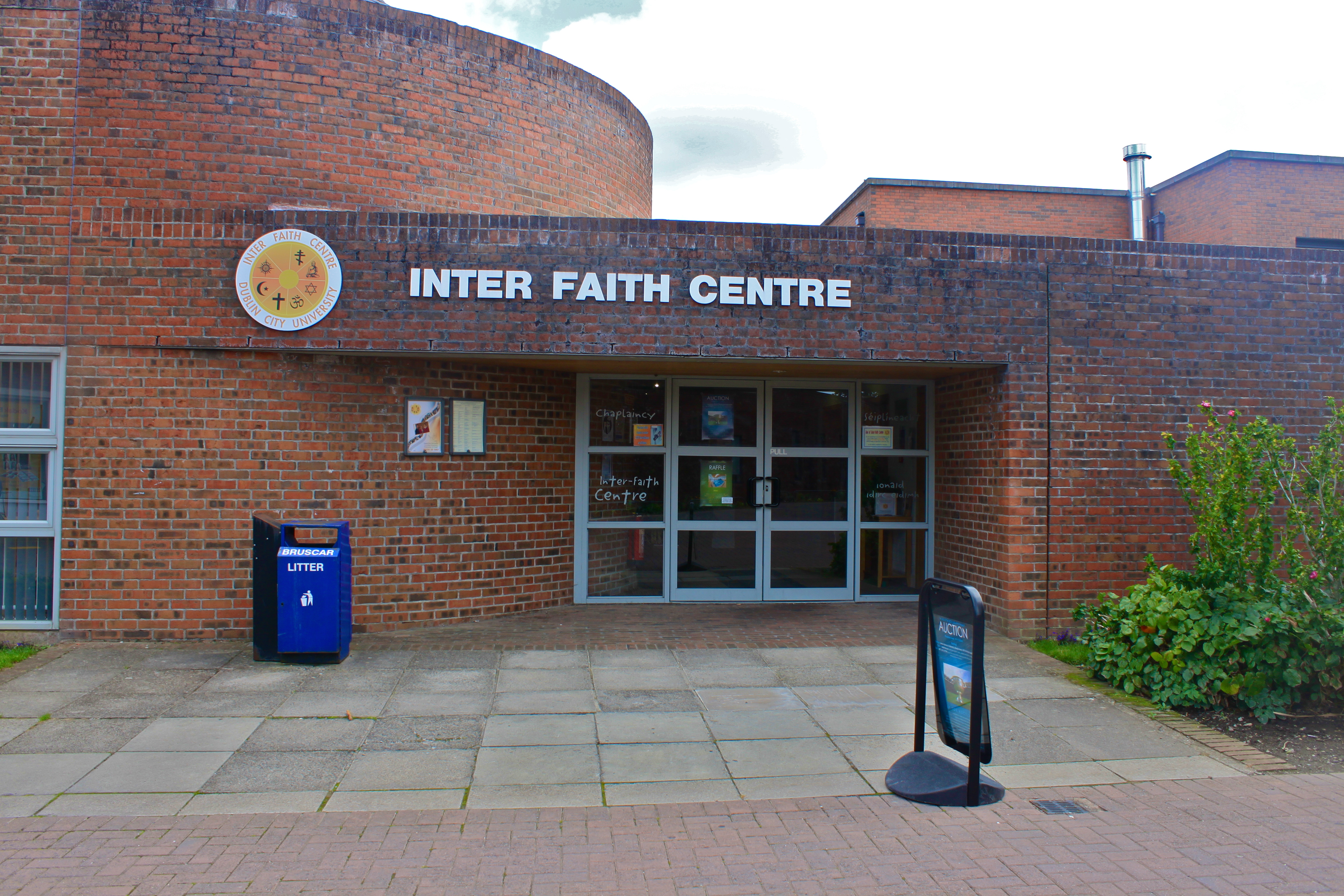
DCU President, Brian MacCraith, spoke exclusively to The College View on a range of topics including an upcoming announcement on a major campus development plan, the merger with St. Patrick’s College and his views on the reform of the CAO and Leaving Certificate.
In quarter one of 2015 DCU will make a major announcement regarding the Campus Development Plan which will include the creation of up to 1000 new beds on or very close to the Glasnevin campus.
President MacCraith revealed that the college is trying to double the amount of on-campus accommodation in the coming years and has also set the ambitious target of having between 25 to 30 per cent of the student population living on campus during his presidency.
“We’ll see somewhere between 850 and 1,000 new beds on campus, bearing in mind we already have 1,200, but we will be seeking to approximately double that in the coming years.”
The impending increase in accommodation comes as welcome news as DCU students have been part of the ongoing housing crisis in County Dublin.
The new accommodation may help to deal with an influx of students from St. Pat’s, however the distribution of students from the Drumcondra-based college remains unclear and is still being discussed.
“There will certainly be over 16,000 students on both campuses. Elements like the distribution of those 16,000 students is not finalised yet but is a key element of our dialogue.”
Elsewhere in the announcement from quarter one, President MacCraith is optimistic that there will be good news in regards to the new student hub.
A referendum was passed last year by the student body with projections of what the four story building will look like.
“We’re actively fundraising for the new student centre and with one more big success, which I’m hopeful of we’ll be able to make the announcement very soon,” MacCraith said.
Ranking Systems
The President voiced his frustration towards the national media’s coverage of the college ranking system saying that there is an over-reliance on the two main systems which don’t offer extensive evaluation.
“There are the two main ranking systems QS and Times Higher. TH has 13 or 14 different elements with over 30% goes to something called reputation,” MacCraith said. “Much older and larger universities tend to do better, but more importantly you tend to see a regional aspect to it. I looked at the data from the year after the major crash in the banking system, in that year all 7 Irish universities fell by close to 90% in their reputation ranking. That didn’t mean that the quality of all seven universities plummeted in that year,” Brian concluded.
MacCraith praised the college’s performance in a new ranking system set up by the European Commission which covers 30 different elements, double that of the main two.
“850 universities took part in the Commission’s evaluation and DCU ended in the top 3 per cent of those universities. It was the highest ranked of all the Irish universities included. You didn’t see that in the papers.”
As well as having plenty to say on the college and the institution going forward MacCraith has backed reform of both second level assessment and indeed the routes from second level to third.
“Have to look at the combination of the CAO and the Leaving Cert, one is an admission process the leaving cert is an exam. The combination of those two if they were left as they are would be hugely negative for students.”
MacCraith said the current leaving certificate system does not encourage the attributes that the colleges are seeking from its graduates.
“Leaving cert is a single assessment tool primarily crammed into two weeks every year. Reflecting at least three years and possibly six years. Is it driving the sort of attributes in our students? I think not.”
Brian highlighted a simple change that could be made to the existing system taking English as an example.
“Let me give you one example, take english, why do we force our students to come out of an exam with their hand half falling off after writing this essay? What part of life does that prepare you for? Where as you could say in January of Leaving Cert year, for this afternoon you’re all going to go into your computers and you’re going to type in your essay and submit it and it’s towards you assessment? Why is that impossible in this day and age? Simplest change you could make.”
MacCraith believes that reform in the CAO system, which is owned and run collectively by the seven Irish universities, will see much more general entry routes like general science, general arts with more choices being made available once in the right faculty.
The allocation of funding is number and demand driven and MacCraith revealed that DCU’s Business courses, which are part of the biggest business school in Ireland, soared in demand leading to an increase in funding.
He said that DCU are in the process of attaining some major accreditation associated with the best business schools and also said the Price Waterhouse Cooper were the biggest employer of graduates across the entire college.
Elsewhere in funding MacCraith said that science and health degrees as well as physics all increased substantially in points and that there has also been a huge interest in DCU’s new joint honours degree which sees degrees like media studies paired up with more traditional arts subjects like english.
While the President was excited about a number of new academic progresses including ePortfolios, which will see students being able to monitor their own development through their time at DCU, it seems to be the Campus Development Plan announcement in early next year that will herald the biggest news.
Some of the plan is already being put in place with the new reception and the new signage out front but with a lot of details yet to be revealed it appears that the campus may look a good deal different in a few years time.
Michael Cogley
Image: Nicola Leddy




Leave a Reply